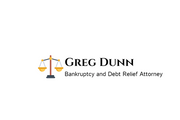4 Common Bankruptcy Mistakes to Avoid

Many people seek debt relief through bankruptcy each year. If you believe this is the best solution for your financial situation, it’s important to follow the proper procedure. Certain mistakes can compromise your case and make it more difficult to obtain a favorable outcome. Here are a few pitfalls to avoid when filing.
4 Bankruptcy Errors to Steer Clear Of
1. Choosing the Wrong Bankruptcy Chapter
For personal bankruptcies, debtors may either file Chapter 7 or Chapter 13. Both work differently to provide debt relief, so it’s essential to explore each option carefully before deciding which is right for you.
Often, people think Chapter 7 is the better choice because it completely eliminates unsecured debts, but they don’t take into consideration that their nonexempt assets will be seized and sold to pay back creditors. Others will file Chapter 13 because they don’t think they qualify for Chapter 7.
2. Incurring More Debt After Deciding to File
 Some consumers will run up their credit card balances further or take out loans before declaring bankruptcy in anticipation of the debt being discharged. However, any new debts acquired within 90 days of filing aren’t eligible for discharge.
Some consumers will run up their credit card balances further or take out loans before declaring bankruptcy in anticipation of the debt being discharged. However, any new debts acquired within 90 days of filing aren’t eligible for discharge.
Furthermore, if the court has reason to believe you’ve incurred debt purposely with no intention of paying it back, they may consider it fraud and charge you with a crime.
3. Failing to Be Honest About Finances
When you petition for bankruptcy, you must provide the court with a full picture of your finances, including all your income, debts, and assets. Attempting to hide income or assets you own is likely to result in a dismissal of your case, ruining your chances of debt relief.
4. Not Fulfilling Your Credit Counseling Requirements
Before filing bankruptcy, you’ll be required to enroll in credit counseling, which is designed to explain the procedure and go over alternative debt solutions to ensure you’re aware of other steps you can take. To finalize your case, you must also take a second session of the course, which will educate you on managing your future finances and rebuilding your credit. Not completing these classes will prevent your debts from being discharged.
If you’re struggling to meet your financial obligations, turn to Greg Dunn, Bankruptcy and Debt Relief Attorney in Honolulu, HI, to discuss your bankruptcy options. Offering more than 20 years of experience, he’ll provide you with sound legal advice and invaluable guidance as you work toward achieving your debt relief goals. Call (808) 524-4529 to schedule a consultation, or visit him online to learn more about his services.
About the Business
Have a question? Ask the experts!
Send your question

